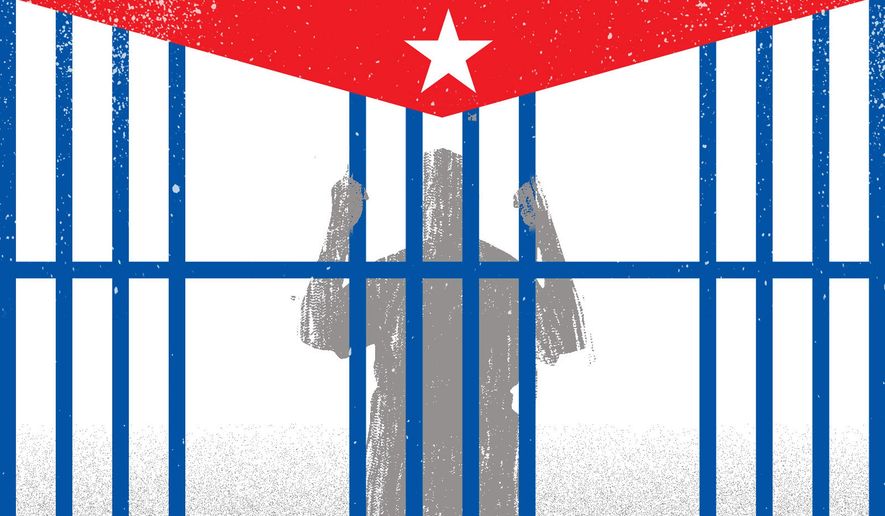OPINION:
Earlier this year, Boston University professor Susan Eva Eckstein published “Cuban Privilege: The Making of Immigrant Inequality in America,” a 300-page book that perpetuates the myth that Cubans are a privileged immigrant class. To argue her point, the author implies that the Cuban identity as “refugees” seeking asylum was a mere construct, not a reality. This is an inaccurate assertion that denies the facts of the Cuban experience and callously disregards the historical tragedies caused by Fidel Castro’s brutal regime.
This assertion, that Cuban exiles were and are not actual “refugees,” is repeated throughout Ms. Eckstein’s book despite the fact that most Cuban exile experiences satisfy the U.N. definition of the term: persons who are outside their country of origin for reasons of feared persecution, conflict, generalized violence, or other circumstances that have seriously disturbed public order and, as a result, require international protection.
To deny that Cubans have endured “feared persecution, conflict, generalized violence, or other circumstances that have seriously disturbed public order” and as a result, do not “require international protection” is to deny reality. The effect of this argument is dangerous because it not only condones reckless historical revisionism about the Cuban exile community, but even more concerning, confirms decadeslong Castro regime propaganda that perpetuates the lie that is not the brutal oppressor history has demonstrated.
To be sure, the establishment of a Cuban communist state in the heart of the Western Hemisphere 90 miles from Florida was an unprecedented event that forced the U.S. to similarly take unprecedented steps in the face of human catastrophe unfolding at its doorstep.
From the onset, the Castro regime aimed to crush its enemies and considered passive dissent or nonconformity a threat to its power. These threats were dealt with by attacking and harassing suspected dissenters with government organized mobs while imprisoning others in concentration camps, and even engaging in ruthless massacres and firing squad executions of innocent civilians who were denied due process. Many of those who escaped violence still faced the confiscation of property and endured political and religious persecution. Others who tried to leave or corresponded with relatives who escaped were marginalized as “class enemies.” Targeted groups included seminarians, clergy, dissident artists, hippies and homosexuals.
Day-to-day life in communist Cuba has always been and remains an exercise of living in fear. Spy committees have been established on every block to control the private lives of neighborhoods. Independent media is prohibited, private schools remain closed, and all aspects of independent civil society are banned. Despite these realities, which have been widely documented, Ms. Eckstein refuses to recognize the active typology of totalitarianism in Cuba. In a stunning act of denial, the author uses the term “totalitarianism” only once in 300 pages, and only to quote U.S. legislation.
To ignore the reality of totalitarianism in Cuba is to lose sight of the systematic mass repression the Castro regime institutionalized. Cubans rightly fled this repression, but they also sought means through which to return to liberate their homeland. The plight of Cuban refugees is a direct result of the United States’ bungled Cuba policy from its dealing with Gen. Fulgencio Batista onward. Tragically, free Cubans suffered from inconsistent U.S. support of their liberation efforts. These efforts arbitrarily risked the lives of more than 1,500 Cuban 2506 Brigade fighters who were left to die or face torture and imprisonment at the hands of Castro’s army during the 1961 Bay of Pigs. This was a betrayal, not a privilege.
As a result of its own failures, the U.S. government ceased all significant efforts to bring about Cuba’s freedom with the 1962 Kennedy-Khrushchev Agreement. Exile training camps once supported by the U.S. were shut down and trainees once treated as heroes were threatened with criminal prosecution if they continued their heroic efforts to free their homeland. Based on their shared values and work ethic, these exiles persevered, and as a community, they succeeded in the United States. But they did not forsake or forget their dream of a free Cuba, and made it their mission to pass on their hopes to new generations.
Despite the determination of the exile community to free its homeland, U.S. initiatives have narrowly focused on dealing with the massive human displacement caused by Castro’s totalitarianism. The U.S. has achieved this by resettling and providing a new life opportunity for Cubans who lost everything, but all meaningful support for their liberation efforts have been discarded by Washington decision-makers.
Still, the author believes the totalitarian Castro regime embodies Cuban self-determination, even though the freedoms that allow people to determine their own destiny were suppressed on a scale unprecedented in Latin American history. In what can be described only as a stunning act of delusion, the author believes that Castro freed Cuba from “the U.S. imperialist yoke,” and that the regime was driven by altruistic ideals to achieve a genuine communist society. Those who have opposed the regime are depicted as selfish, belittling the sacrifice of those who died in the fight for Cuban liberty.
Ms. Eckstein’s search for truth is driven by ideology, not the ethical value of science. Cuba’s tragedy under totalitarianism has not been a privilege, but rather the tragic fate of a proud, hardworking people who cherish freedom. While Cubans have not forgotten the plight of their native land, they revere the values of the United States and its institutions. To suggest otherwise is not only a denial of facts and history, but rather an embrace of the false reality projected by decades of debunked Castro regime propaganda, which is immersed in lies.
• Orlando Gutierrez Boronat is the coordinator of the Assembly of the Cuban Resistance, a U.S.-based nonprofit, pro-democracy organization. He is also the author of “Cuba: The Doctrine of the Lie.”




Please read our comment policy before commenting.